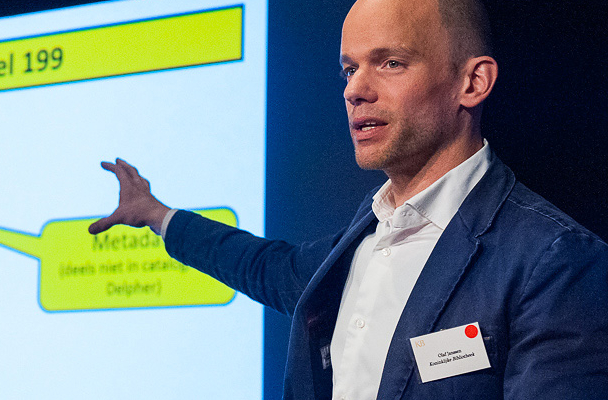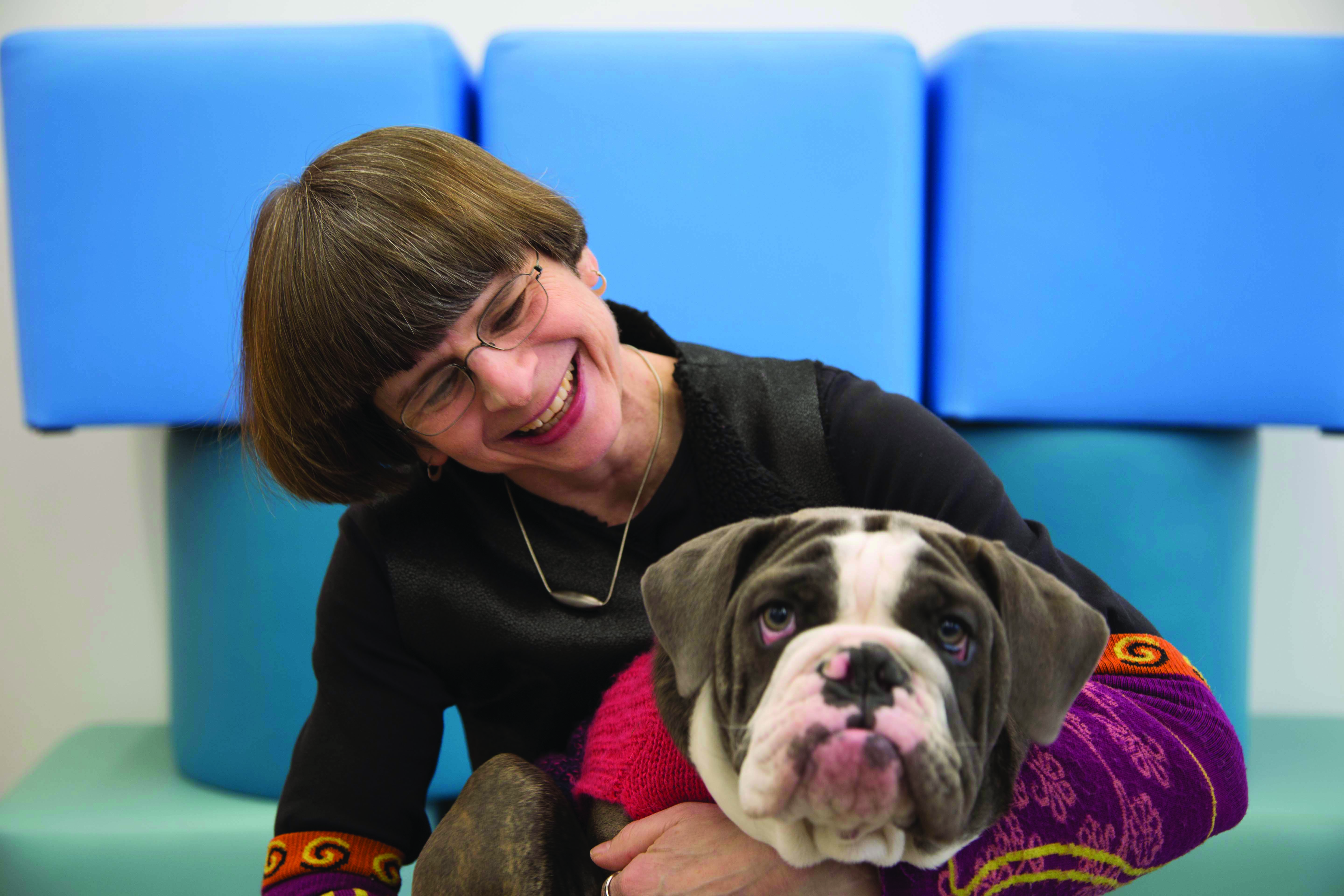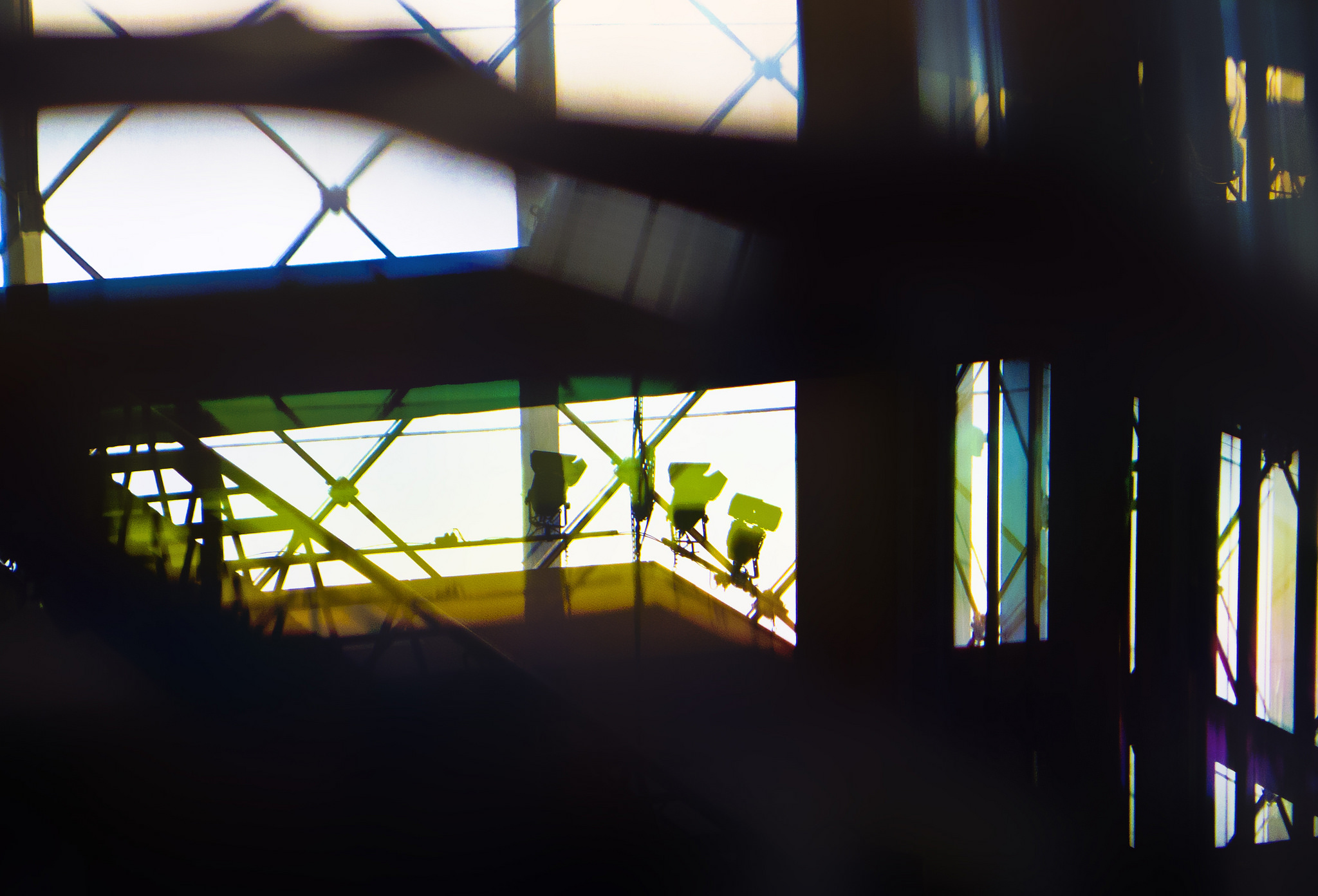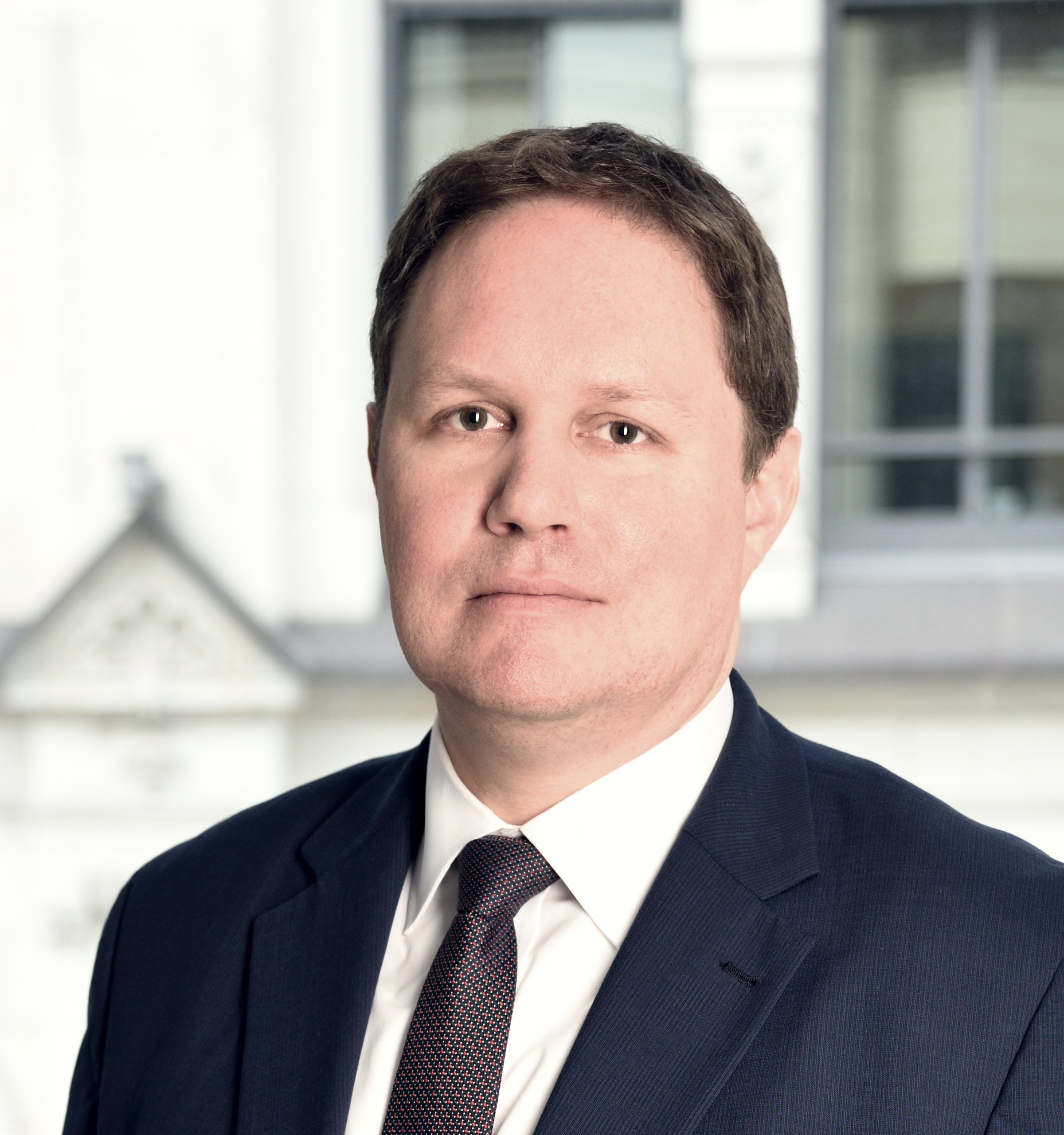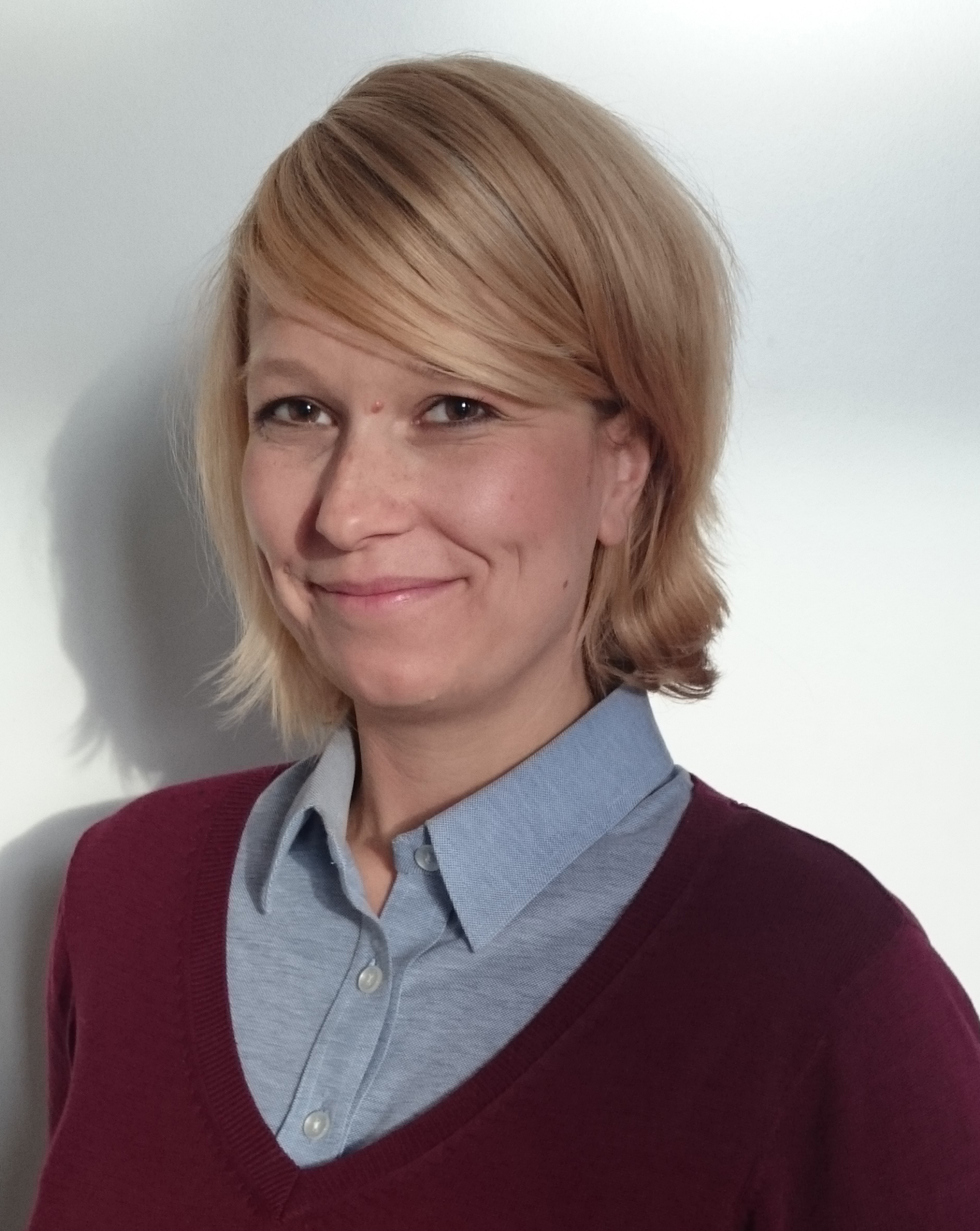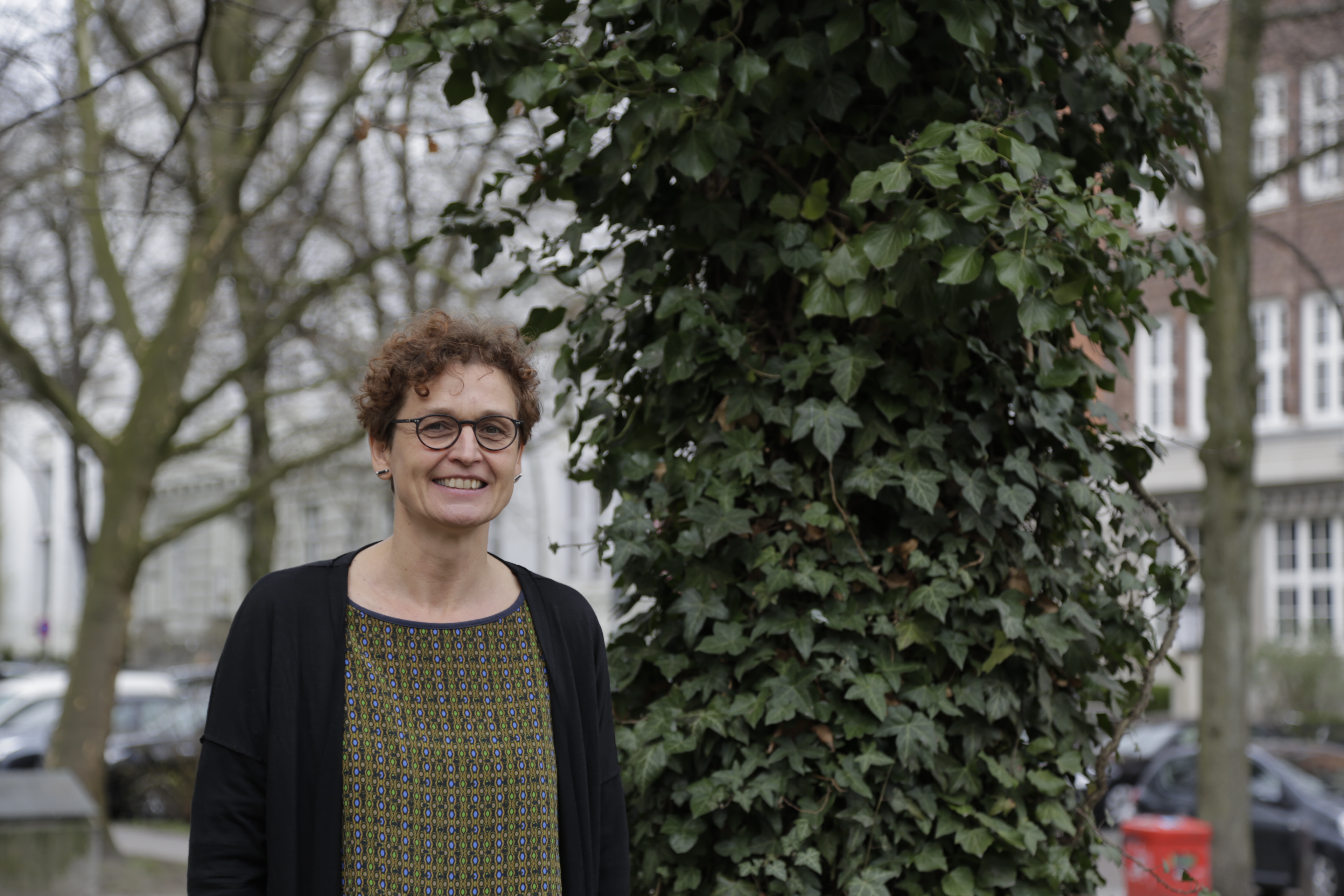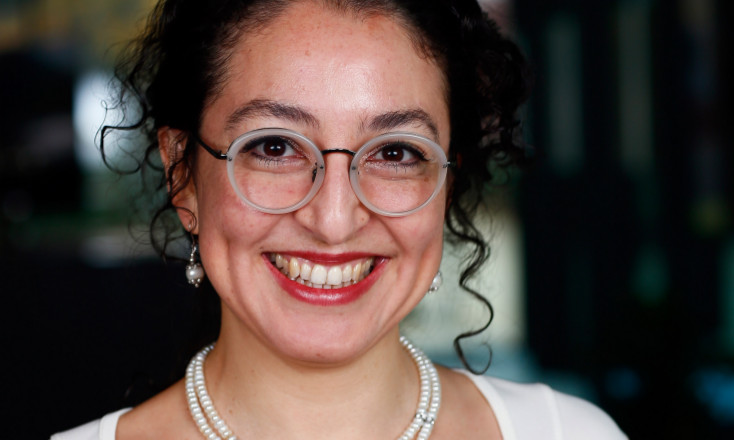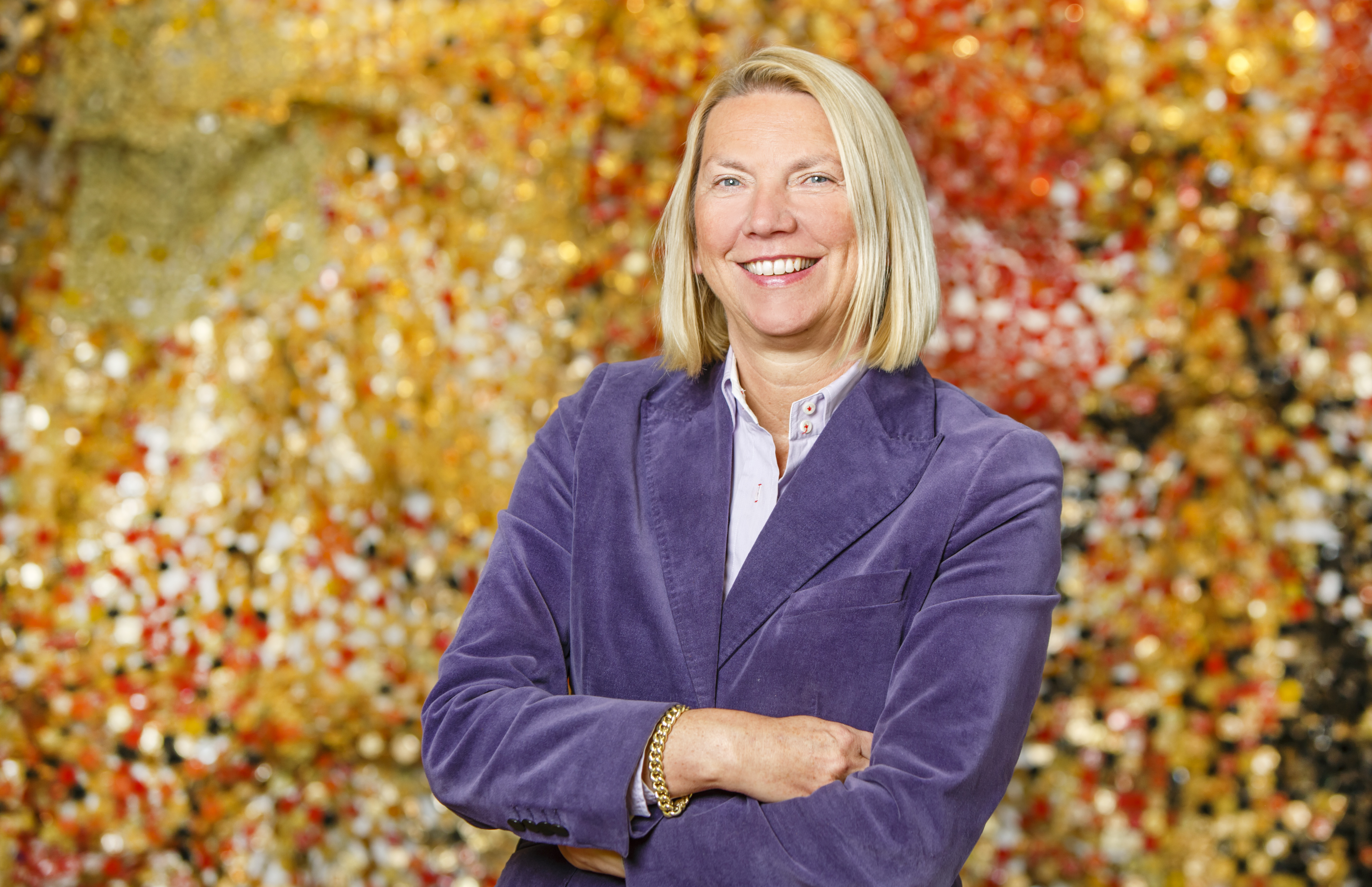O.D. (Olaf) Janssen (Dongen, 1973) studied astronomy in Leiden and has been active in the library and heritage field since 2001. He is co-founder of The European Library and a pioneer at Europeana, the European Union cultural heritage platform. He is currently working on Open Data & Wikimedia-coordination at the National Library of the Netherlands (KB) in The Hague. He stimulates and facilitates activities that open collections, knowledge, data and bring the staff at the KB and the projects of the Wikimedia movement, such as Wikipedia, together. He is also active in the movement as a volunteer.
Keynote: Elizabeth Merritt
GLAMS in a Digital Future
Times of rapid change challenge organizations to revisit the assumptions underlying their existing practices. Some companies thrive by reinventing their business models while others fail to understand how their strengths align with new opportunities. GLAMs (Galeries, Libraries, Archives, Museums)—as individual organizations and as a sector—need to examine how the rise of open, digital culture may transform the core value they offer to society.
About Elizabeth Merritt
Vice President, Strategic Foresight and Founding Director, Center for the Future of Museums, at the American Alliance of Museums
Believing that museums can change the world, Elizabeth Merritt is devoted to helping museums create a brighter future for their communities. As founding director of the American Alliance of Museums’ Center for the Future of Museums, she applies the tools of strategic foresight to the nonprofit realm. Ms. Merritt conducts trends forecasting and scenario development for museums, sharing her work through publications, social media and presentations. She is the author of CFM’s annual TrendsWatch report and produces the weekly e-newsletter Dispatches from the Future of Museums. She frequently keynotes at conferences in the US and abroad. In recent years, her work has expanded to encompass libraries, orchestras and opera as well. Elizabeth earned has her B.S. from Yale and an M.A. in cell and molecular biology from Duke University, as well as training in futures studies at the University of Houston.
Sharing is Caring 2015: Right to Remix?
Sharing is Caring: Right to Remix? was held 2 October 2015 in the DR Concert Hall in Copenhagen.

#sharecare15
#righttoremix
Sharing is Caring: Right to Remix? addressed the topic of remix culture and rights, and how the cultural heritage sector can deal with these in constructive and proactive ways.
Through a versatile programme of international keynote speakers, keynotes in conversation and ignite sessions, the seminar focused on the amazing stuff the cultural sector can achieve when rethinking the logic of copyright in a digital age perspective. But we also discussed the hurdles to overcome and the fights to take, when we want to challenge the traditional notion of copyright.
The speakers delivered talks to open up fresh perspectives on how to work more flexibly with rights in the digital age, and what awesome potentials the cultural sector can tap into if we dare to change our existing mindsets and ways of working.
As a special feature this year, Sharing is Caring led directly up to the annual cultural heritage hackathon Hack4DK from Friday evening 2 October through Sunday 4 October.
SPEAKERS
Keynote speaker Melissa Terras
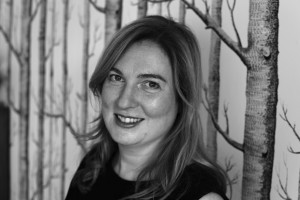
Read the blogposts that Melissa based her keynote on.
Taking, Making and Law-Breaking: copyright, digitised content, and the digital maker movement.
In this talk, Melissa Terras will talk about her experiences in trying to reuse digitized heritage content to make something she likes, wants, and will use – and the frustrating barriers she encountered along the way. Covering issues of technical digitization standards, search and retrieval issues, and licensing issues, it is demonstrated how difficult it is to reuse cultural heritage content in this context, given the implicit and explicit barriers raised, institutionally, technically, and legally, along the way.
Melissa Terras is Director of UCL Centre for Digital Humanities, Professor of Digital Humanities in UCL’s Department of Information Studies, and Vice Dean of Research (Projects) in UCL’s Faculty of Arts and Humanities. With a background in Classical Art History, English Literature, and Computing Science, her doctorate (Engineering, University of Oxford) examined how to use advanced information engineering technologies to interpret and read Roman texts. Publications include “Image to Interpretation: Intelligent Systems to Aid Historians in the Reading of the Vindolanda Texts” (2006, Oxford University Press) and “Digital Images for the Information Professional” (2008, Ashgate) and she has co-edited various volumes such as “Digital Humanities in Practice” (Facet 2012) and “Defining Digital Humanities: A Reader” (Ashgate 2013). She is currently serving on the Board of Curators of the University of Oxford Libraries, and the Board of the National Library of Scotland. Her research focuses on the use of computational techniques to enable research in the arts and humanities that would otherwise be impossible. You can generally find her on twitter @melissaterras.
Keynote speaker Maarten Zeinstra
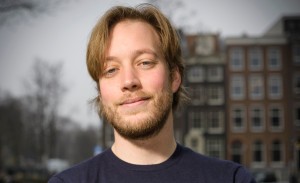
Caring for the limits of sharing
If the cultural heritage sector wants to support a thriving Remix Culture, we need to debate the legal and technical mechanisms that are holding artists and institutions back from sharing. We need a frank discussion on the merits of sharing vs. the monopoly of intellectual property rights.
Maarten Zeinstra works at Kennisland (KL). KL is an independent think tank with a public mission. KL aspires to strengthen our knowledge society by designing innovative programmes and realising interventions to address the grand challenges of today’s society. A strong knowledge-driven society subsists because of access to information. By making digital heritage collections available in an open and innovative way, knowledge can thrive.
Maarten is advisor on copyright law and open technology in the cultural sector. His focus is to guide cultural institutions in making data available online. In practice, this means writing policy, giving workshops and masterclasses, and guiding technological development. Maarten is project lead of Creative Commons Nederland and has extensive experience as a requirements engineer and architect for projects like Open Images, Europeana and OutOfCopyright.eu.
Keynote speaker Eva Van Passel
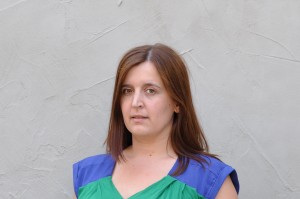
How open is open enough? A philosophy of cultural commons for the cultural heritage sector.
Cultural (heritage) institutions are redefining their roles in a context of digital access to culture. This talk will address how the cultural heritage sector can adopt a layered approach, with different degrees of openness. An overall goal of cultural heritage institutions in the digital age can be to provide as much access as possible and to be as open as possible towards reuse and remix practices. How open this is, however, might change depending on specific user communities, and it can also be different depending on the content being shared.
Eva Van Passel has been a researcher at iMinds – SMIT, Vrije Universiteit Brussel, since 2007. Her research interests include the many challenges and opportunities for arts and heritage in a networked society, but her research mainly focuses on the changing roles of cultural (heritage) institutions in the context of digitisation, digital preservation, and distribution and sustainable digital access. Topics under scrutiny over the years have included strategic challenges for cultural institutions, digital cultural policy, audience strategies, business models, the European digital library Europeana, open cultural data and open GLAM initiatives, and financing models for digital cultural heritage. Eva holds Masters degrees in Communication and Media Studies, and in Film Studies and Visual Culture.
Keynote speaker: Cédric Manara
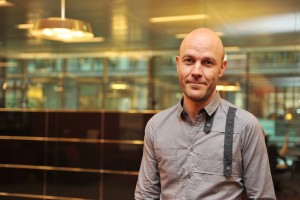
Copyright and the 99%
Historically, copyright has been concerned with encouraging commercial cultural production. Today, most of the creative expression comes from amateurs who do not understand copyright, or have no clue what it’s about. What about tomorrow? The Internet, with its 2.8 billion users and counting, is just beginning to change the legal landscape. How to reform copyright – in Denmark or in Europe – to reconcile the interests of those who want to make money, when others just want to share knowledge or information?
Cédric Manara, PhD, has lost his hair teaching, writing or consulting. He has been a full time law professor at EDHEC Business School (France) and held visitorships in Finland, Italy, Japan and the USA, published a lot on intellectual property and internet legal issues, and also was a consultant for e-commerce companies or law firms. He joined Google’s wonderful legal team as copyright counsel in 2013.
PANEL DEBATE: CREATIVE COMMONS FOR CONTEMPORARY ART?
A terrific panel of artists, copyright experts, and museum people in a debate about contemporary art, digital media, and rights issues.
In this debate, we discussed perspectives and challenges in using Creative Commons licenses on contemporary art, as opposed to traditional copyright. Does it entail increased visibility for artists if they share reproductions of their work more liberally than copyright allows for? Is it even possible for artists to opt out of social media today, if they want their work to known more widely? Are there new ways for artists to make revenues in connection with more openly licensed images of their work? Or is it a slippery slope to start relaxing the restrictions on how images of artworks are shown, shared and circulated online?
IT lawyer Martin von Haller Grønbæk, Bird & Bird, will moderate the debate.
Carsten Brosda
Journalism and political science studies at the University of Dortmund; PhD on “discursive journalism” in Dortmund University’s faculty of cultural studies
2000 – 2005: press officer and editor, later speechwriter and policy officer for the SPD party executive
2005 – 2009: head of the speeches, text and analysis unit at the Federal Ministry of Labour and Social Affairs
2008 – 2009: deputy head of the management and planning staff at the Federal Ministry of Labour and Social Affairs
2010 – 2011: head of the SPD party executive’s communication department
June 2011 – February 2016: head of the media office in Hamburg’s Senate Chancellery, from 2013 additionally the Senate’s authorised media representative
March 2016 – January 2017: State Secretary in the Ministry of Culture; State Secretary in the Senate Chancellery for the media and digitisation sectors
Minister of Culture and Head of the Ministry since February 2017
Antje Schmidt
Sharing is Caring – Hamburg Extension or: Why Sharing is Caring in Hamburg?
Antje Schmidt is Head of Digital Cataloguing at the Museum für Kunst und Gewerbe Hamburg. Trained as an art historian and with a research background in museum history she is involved in digital cultural heritage projects for 10 years. With the launch of MKG Collection Online she has established a Public Domain Policy as part of the museums evolving digital strategy. She is elected Councillor of the Europeana Network Association, part of the workings group “Museum” in the Association for Digital Humanities in the German speaking Countries and serves on the Advisory Board for the Europeana Art Collections.
Gertraud Koch
Gertraud Koch is Professor of European Ethnology/Cultural Anthropology at Universität Hamburg. She is Vice Chair of the Expert Committee of Immaterial Cultural Heritage of the German Commission for UNESCO. Her publications address questions of cultural production in digital times and currently together with Samantha Lutz conceptual reflections on sustainability in culture.
Trilce Navarrete
Trilce Navarrete is a specialist in historic and economic aspects of digital heritage and co-funder and editor of the EconomistsTalkArt.org blog.
Her research is driven by an interest to support evidence based policy to increase the use of digital heritage in our lives. She has studied the adoption of computers in museums, archives and libraries and is currently researching the effects of mediated heritage consumption, including the case of user preference to view and edit Wikipedia (read here).
Sabine Schulze
Prof. Dr. Sabine Schulze is the director of the Museum für Kunst und Gewerbe Hamburg since 2008. Under her management the museum started a large-scale transformation process. It resulted not only in the modernization and remodelling of the permanent collections or the realization of a very diversified exhibition programme, but also in innovative digital projects like an iBeaon Tour or the MKG Collection Online. Realizing – as the first art museum in Germany – an open licensing policy had a great impact on the internal development of the institution and helps to perceive the museums’ audiences as collaborators instead of visitors.

